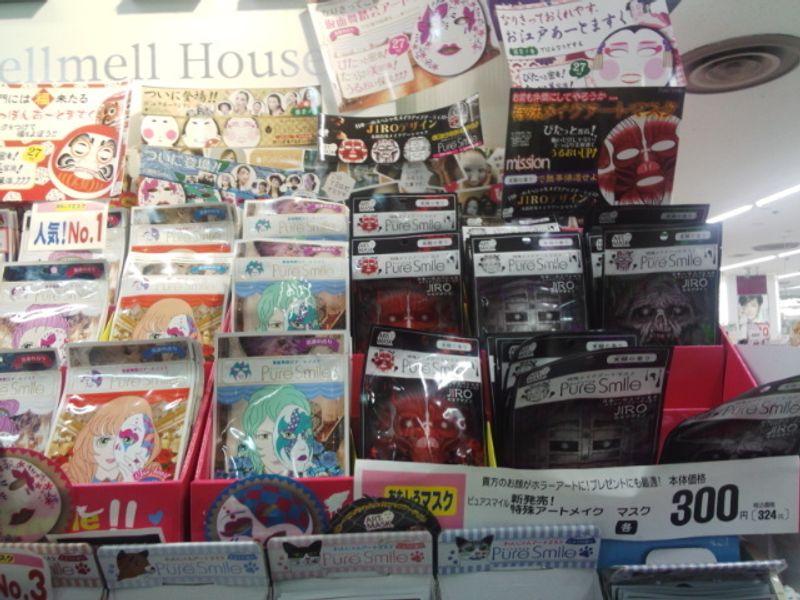Feb 25, 2017
5 Tips to Ease Transition to Living in Japan
I remember asking, "What is it like there?" to anyone who had made the leap across the Pacific the week before I arrived in Japan. I didn't really get any good answers. To one guy, a colleague at the same training gig, I even inquired the first thing he would do when he arrived in the land of the rising sun.
"Kiss the ground." he said, and I didn't really get it. I mean Japan is cool, but is it holy to you in such a way that ground-kissing is appropriate? I started thinking what I would do instead and could not come up with any ideas, having yet to leave my home country or continent. I'd be flying in, meeting my boss and taking the train to the middle of nowhere. I had no idea what to expect.
In many ways, Japan is like anywhere else, but those hard-to-define touches that make it so special also make it hard to fully predict. Combine that with each visitor's unique personality and perspective and you can come across a thousand different versions of Japan, some beautiful and some horrid but each with its own truth. This can make the preparation for living abroad quite taxing. What's it like to live in Japan? It's great, and horrid, and strange, but also boring. It's brilliant, and clever, and appalling stupid. It's as frustrating and blissful as life itself. Living in Japan is an adventure.
By the way, the first thing I did in Japan was buy an Qoo brand orange juice from a vending machine in Nagoya airport and rearrange my luggage. The first new thing I learned in Japan was that big bags can be shipped from the airport to your apartment for a fee, which is really useful if your destination isn't so close to the airport or train station. This doesn't help if that's where all your clothes are and you have to work before the bags arrive in 2 days, so if you're likely to arrive in a similar situation, put some yen aside for shipment and have your address handy.
Here are five tips for to help you settle in and make the most of your time in Japan.
Things to remember:
Bring What You Need.

And who doesn't need attractive young men selling sodas and beer?
American style deodorant, toothpaste with fluoride, women's shoes above size 8, and bras larger than a US B-C cup can be hard to find out here, depending on where you wind up, and even when you can find some things at import shops, they tend not to be cheap. If you have friends or relatives back home who can ship you a few odds and ends, make sure to get them your address when you can. Waiting too long and/or not bringing a good supply can leave you feeling less than fresh and it is hard to be comfortable with your job-doing and adventure-having when you're trying to hide pit-stains.
That said, I had a friend who suggested I might need silverware, as he had thought chopsticks to be the only option available. This was very much not the case. You can get spoons, forks, knives, etc. from the 100 yen shops or the home improvement shops. If you're around a US medium, you can generally find clothes at most shops. If you're a bit bigger, that can be tricky, but one thing I recently discovered was H&M's plus sized section on their website, complete with a no-fee COD.
Save When You Can
No, you do not need all the fun, crazy masks. Nor do your friends. Seriously. Put down the masks.
I wasted so much money my first year or two abroad, buying needless random things to send to people. You know what works better than this? Pictures. Take lots of pictures and tag your friends. They won't have to wait for a package and you won't have to worry about the cost of shipping. Occasional splurges are one thing, but if a significant part of your pay check every month goes to amusing people on the other side of the world, there might be a problem. If I'd come here on a budget, I would have been a lot better off, and a lot less scared when the company that brought me to Japan was bought out 2 years into my stay, taking most of a paycheck with them. I moved far north to live with my then-boyfriend's family and lucked out in getting a new semi-full-time teaching gig right off the bat. I was very lucky.
In today's economy, it is important to have a little to fall back on just in case things don't work out as you intended.
Try Some New Things

Did anyone else try these last winter? Delicious!
Don't forget to put yourself out there and try something new, even if it is just a candy bar with a season flavor or a snack you've never seen before. Have a little adventure in "new" on a regular basis. This can help alleviate the symptoms of Gaijin-itis (swelling of the foreign entity, also know as that intricate mixture of culture shock and homesickness every foreigner in Japan feels at some point) by helping you to find new things to love about live out here.
This might seem contradictory of the saving advice, but all things in moderation. Programming in your budget a little allowance for fun is probably a good idea, though at very least, it is unlikely that 150 yen worth of snacks will break the bank.
Make It Your Own
No one but us can be this excited to ride the train.
I always find it a bit bittersweet when I see new arrivals trying so hard to fit in. I want to congratulate them on the attempt-- they are speaking softly and carefully, trying to remember to use honorific forms and bow politely. Perhaps they haven't had that first slap in the face of gaijin-itis. Perhaps they still feel like paying attention to all of the rules and doing the cordial social dance as intricately as all the others will pay off, and maybe for some it does. This however has not been my experience. Every time I think I have my oafish feet moving in the correct manner, another factor comes out of nowhere to throw me off.
These hidden factors, the societal norms so ingrained as to be natural, usually go without notice to natives, but trust a foreigner to only find the thing by screwing it up. It took me years to realize that I was supposed to dismantle the bathtub facing to clean inside the thing. Even now, I'm not exactly sure how I'm going to get all of the many bags and other materials necessary for Japanese kindergarten made/purchased before my kid starts school in the coming months. Living in Japan, I am frequently confronted by the knowledge that my instincts and basic understandings are inherently wrong about any number of normal Japanese things, and when I see how far I am from the goal, I tend to give up.
I am not saying you should give up, but do find a happy medium here where you can be yourself and express yourself in a way that you are comfortable. If you one day find that bowing so low and speaking so softly isn't for you, don't be disheartened. A lot of us out here don't do that so automatically anymore either. You're only human.
My point with all of this is that the Japanese experience you are having is your own, so make it work for you. At the end of the day, most of us can't help but feel occasionally like we really don't belong here, and if the only thing you want is to fully belong to Japanese society, you might not be gearing up for the best experience. Instead, find ways to make your home your own, even if it is only your home for a few months or a year. Find things about Japan (hobbies, cultural effects, events, places) that you love and enjoy them in a way that you only can in Japan.



3 Comments
DaveJpn
on Feb 28
Loved this! It's gotten me trying to think of the first thing I did when I arrived in Japan, and I hand on heart can't remember. I can remember the bus from Narita, and looking out onto the highway and thinking how boxy all the cars looked. I like what you said about sending 'Japanese' stuff back to people at home. I used to do this a lot on birthdays, Christmas etc but then at some point I started to think, 'Are they getting bored of this?'. Like, perhaps the novelty of some hand crafted chop sticks has worn off?! So, I stopped mostly, but there's a friend who's still getting various forms of Japanified Star Wars stuff!
JTsu
on Mar 2
@DaveJpn Those cars are excessively boxy, aren't they? I found myself ogling them with unabashed curiosity my first year in. People back home wouldn't buy this. It's not sexy. It's a box. And yet... I am also frequently captivated by the Japanese-y Star Wars stuff, and there are a couple of friends and relatives who get occasional boxes, but my first year was nuts. Now I am actually running an Engrish and Weird Japanese Stuff monthly box subscription service via Patreon, so I am getting paid to collect the things and send them to people who tell me if they like the boxes. It's not insanely profitable, but it works.
DaveJpn
on Mar 13
@JTsuzuki That's cool! Sounds like an interesting side project.